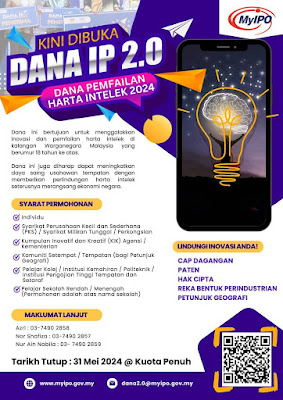Malaysia’s tropical climate is no joke, especially during Ramadan when the sun is blazing, and the humidity feels like a thick blanket. Fasting during the day can make the heat even more challenging, but with a few smart strategies, you can stay cool, comfortable, and energized throughout the holy month. Here are some practical tips to help you beat the heat and make the most of Ramadan.
1. Dress Smart: Choose Breathable Fabrics
What you wear plays a huge role in how you handle the heat. Opt for lightweight, breathable fabrics that allow air to circulate and sweat to evaporate.
Cotton: This natural fabric is a lifesaver in hot weather. It’s soft, breathable, and absorbs moisture, keeping you cool and dry.
Linen: Known for its lightweight and airy texture, linen is perfect for Malaysia’s climate. It dries quickly and doesn’t cling to your skin.
Avoid Polyester and Synthetics: These materials trap heat and moisture, making you feel sticky and uncomfortable. Save them for cooler days!
Pro Tip: Loose-fitting clothing in light colors (white, pastels, or beige) reflects sunlight and helps you stay cooler.
2. Stay Hydrated During Non-Fasting Hours
Dehydration can make the heat feel even worse. Make sure to drink plenty of water during sahur (pre-dawn meal) and iftar (breaking fast).
Water is Key: Aim for at least 8 glasses of water between iftar and sahur. Add a slice of lemon or cucumber for a refreshing twist.
Hydrating Foods: Include water-rich foods like watermelon, cucumber, and oranges in your meals. They help replenish fluids and keep you hydrated.
Avoid Caffeine and Sugary Drinks: These can dehydrate you, so limit your intake of coffee, tea, and sodas.
3. Plan Your Day Around the Heat
Malaysia’s sun is at its peak between 11 a.m. and 3 p.m. Try to schedule your activities to avoid being outdoors during these hours.
Indoor Activities: Use this time for prayers, reading, or light chores at home.
Shade and Fans: If you must go out, stay in shaded areas and carry a portable fan or umbrella.
Cool Showers: A quick cool shower during the day can help lower your body temperature and refresh you.
4. Eat Light and Nutritious Meals
Heavy, oily meals can make you feel sluggish and overheated. Focus on light, nutritious foods that provide sustained energy.
Sahur: Start your day with complex carbs (like oats or whole-grain bread), protein (eggs or yogurt), and fruits. Avoid salty foods that can make you thirsty.
Iftar: Break your fast with dates and water, followed by a balanced meal. Include grilled or steamed dishes instead of fried foods.
Cool Desserts: Treat yourself to refreshing desserts like cendol, ais kacang, or fruit salads to cool down after iftar.
5. Use Cooling Accessories
Sometimes, a little extra help is needed to stay cool. Here are some handy accessories to beat the heat:
Cooling Towels: Soak a small towel in cold water, wring it out, and place it on your neck or forehead for instant relief.
Portable Fans: Carry a handheld fan or use a battery-operated one to keep air circulating around you.
Misting Spray: A small spray bottle filled with water can be a quick way to cool down when you’re on the go.
6. Create a Cool Environment at Home
Your home should be a sanctuary from the heat. Here’s how to keep it cool:
Close Curtains and Blinds: Block out the sun during the hottest part of the day to keep your home cooler.
Use Fans or Air Conditioning: If you have air conditioning, set it to a comfortable temperature. If not, use fans to circulate air.
Cross-Ventilation: Open windows on opposite sides of your home to create a breeze and improve airflow.
7. Stay Mindful of Your Energy Levels
Fasting can make you feel more tired, especially in the heat. Listen to your body and take it easy when needed.
Rest When Necessary: Take short naps or rest breaks during the day to recharge.
Light Exercise: If you want to stay active, opt for light exercises like stretching or yoga in the early morning or evening.
8. Embrace Traditional Remedies
Malaysia has a wealth of traditional remedies to help you stay cool during Ramadan:
Honey and Lemon: Mix honey and lemon in water for a natural energy boost and cooling effect.
Herbal Teas: Try cooling herbal teas like chrysanthemum or mint after iftar.
Final Thoughts
Ramadan is a time of reflection, spirituality, and community, but the heat in Malaysia can make it challenging. By dressing in breathable fabrics like cotton and linen, staying hydrated, planning your day wisely, and creating a cool environment, you can beat the heat and fully embrace the blessings of the holy month.
Remember, it’s not just about staying physically cool—it’s also about maintaining a calm and positive mindset. May this Ramadan be a peaceful and fulfilling experience for you and your loved ones. Selamat Berpuasa!
Feel free to share this article with friends and family to help them stay cool during Ramadan! Let me know if you’d like to add more tips or customize this further. 😊




